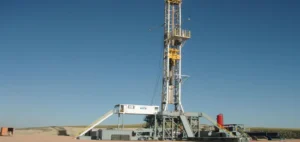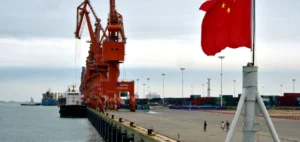In Afghanistan, the Taliban signed a provisional agreement with Russia for the supply of gasoline, diesel, gas and wheat.
A first trade agreement
In Afghanistan, Acting Minister of Trade and Industry Haji Nooruddin Azizi announces a tentative agreement with Russia. The objective for the country is to diversify its trade partners. In addition, Russia had offered the Taliban administration an advantageous tariff compared to average world commodity prices.
The initiative is the first major international economic agreement reached by the Taliban since their return to power in Afghanistan. In addition, the initiative could help alleviate the isolation of the Islamic movement from the global banking system. No country has officially recognized the group since their return to power in Kabul after a 20-year insurgency.
The question of human rights
Western diplomats say the group needed to change its human rights policy. In addition, Western countries are asking the Taliban to prove that they no longer have ties to international militant groups. Thus, for Afghanistan, these are prerequisites for obtaining official recognition.
Russia does not officially recognize the Taliban government in Afghanistan. However, Moscow was hosting leaders of the movement as the fall of Kabul approached. In addition, the Embassy of the Russian Federation is one of the few remaining open in the Afghan capital.
A trial agreement
According to the agreement, between Afghanistan and Russia, Moscow would supply about one million tons of gasoline each year. The agreement also provides for the delivery of one million tons of diesel and 500,000 tons of liquefied petroleum gas. Finally, the agreement refers to the delivery of two million tons of wheat.
The Acting Minister of Trade and Industry states that the agreement includes an unspecified trial period. After this period, both parties should sign a longer-term agreement if the arrangement is satisfactory. Haji Nooruddin Azizi says the goods would be transported by road and rail to Afghanistan.
Financial freeze
Since the return of the Taliban to power, Afghanistan has suffered an economic crisis. The country was heavily dependent on development aid. In addition, the context of sanctions largely freezes the country’s banking system.
The United States is closely monitoring the trade agreement. In addition, Washington announced the creation of a Swiss trust fund for part of the reserves of the Central Bank of Afghanistan. However, the Taliban is demanding the release of the full amount of approximately $7 billion.
Diversification of Afghan supplies
Haji Nooruddin Azizi says that international data showed that most Afghans were living below the poverty line. He also states that his office strives to support trade and the economy through international contacts. Thus, the Acting Minister of Trade and Industry states:
“Whatever we do, we do it based on the national interest and the benefit to the Afghan people.”
He says that Afghanistan was also receiving some gas and oil from Iran and Turkmenistan. In addition, it relies on trade links with Pakistan. However, the priority objective is to succeed in diversifying the country’s sources of supply.






















